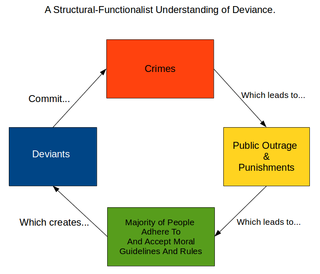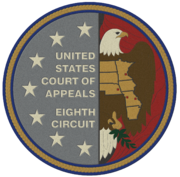Significance
The case is significant because of the issues it raises if a legal decision is based on the testimony of mental health professionals, by means of forensic psychology. First, it points to a difficult issue in competency evaluations. Although the standards for competency were set forth in Dusky v. United States , [5] much of the standard remains ambiguous and is not clearly defined. Only one common principle is clear in forensic evaluations, that forensic evaluators cannot reach a finding independent of the facts of the case at hand. [6]
Second, many practitioners feel strongly that forensic evaluators should restrict themselves to behavioral observations and describing test results only, and avoid making statements on legal questions as transpired in this case. [7] This case makes it all the more important that the forensic evaluator clarify to the defendant that any information obtained will not be kept confidential, since the defendant has no control over how this information will be used. [8]
Third, the issue of malingering is particularly problematic as there is no ultimate test, and such diagnoses boil down to clinical decisions. An extensive review of the literature by Melton et al. did not reveal any studies in which clinicians using various combinations of testing procedures and interviews demonstrated any "extraordinary ability" to detect malingering. [9]
The insanity defense, also known as the mental disorder defense, is an affirmative defense by excuse in a criminal case, arguing that the defendant is not responsible for their actions due to a psychiatric disease at the time of the criminal act. This is contrasted with an excuse of provocation, in which the defendant is responsible, but the responsibility is lessened due to a temporary mental state. It is also contrasted with the justification of self defense or with the mitigation of imperfect self-defense. The insanity defense is also contrasted with a finding that a defendant cannot stand trial in a criminal case because a mental disease prevents them from effectively assisting counsel, from a civil finding in trusts and estates where a will is nullified because it was made when a mental disorder prevented a testator from recognizing the natural objects of their bounty, and from involuntary civil commitment to a mental institution, when anyone is found to be gravely disabled or to be a danger to themself or to others.
In legal terms, a plea is simply an answer to a claim made by someone in a criminal case under common law using the adversarial system. Colloquially, a plea has come to mean the assertion by a defendant at arraignment, or otherwise in response to a criminal charge, whether that person pleaded or pled guilty, not guilty, nolo contendere, no case to answer, or Alford plea.

Insanity, madness, lunacy, and craziness are behaviors performed by certain abnormal mental or behavioral patterns. Insanity can manifest as violations of societal norms, including a person or persons becoming a danger to themselves or to other people. Conceptually, mental insanity also is associated with the biological phenomenon of contagion as in the case of copycat suicides. In contemporary usage, the term insanity is an informal, un-scientific term denoting "mental instability"; thus, the term insanity defense is the legal definition of mental instability. In medicine, the general term psychosis is used to include the presence of delusions and/or hallucinations in a patient; and psychiatric illness is "psychopathology", not mental insanity.
Obstruction of justice, in United States jurisdictions, is an act that involves unduly influencing, impeding, or otherwise interfering with the justice system, especially the legal and procedural tasks of prosecutors, investigators, or other government officials. Common law jurisdictions other than the United States tend to use the wider offense of perverting the course of justice.

Forensic psychology is the practice of psychology applied to the law. Forensic psychology is the application of scientific knowledge and methods to help answer legal questions arising in criminal, civil, contractual, or other judicial proceedings. Forensic psychology includes research on various psychology-law topics, such as jury selection, reducing systemic racism in criminal law, eyewitness testimony, evaluating competency to stand trial, or assessing military veterans for service-connected disability compensation. The field traces its roots to contributions by Wilhem Wundt, Hugo Münsterberg, and Sigmund Freud among others. Contemporary definitions of forensic psychology recognize that several subfields of psychology apply "the scientific, technical, or specialized knowledge of psychology to the law." The American Psychological Association's Specialty Guidelines for Forensic Psychologists reference several psychology subdisciplines, such as social, clinical, experimental, counseling, and neuropsychology.

Forensic psychiatry is a subspeciality of psychiatry and is related to criminology. It encompasses the interface between law and psychiatry. According to the American Academy of Psychiatry and the Law, it is defined as "a subspecialty of psychiatry in which scientific and clinical expertise is applied in legal contexts involving civil, criminal, correctional, regulatory, or legislative matters, and in specialized clinical consultations in areas such as risk assessment or employment." A forensic psychiatrist provides services – such as determination of competency to stand trial – to a court of law to facilitate the adjudicative process and provide treatment, such as medications and psychotherapy, to criminals.
The United States Federal Sentencing Guidelines are rules published by the U.S. Sentencing Commission that set out a uniform policy for sentencing individuals and organizations convicted of felonies and serious misdemeanors in the United States federal courts system. The Guidelines do not apply to less serious misdemeanors or infractions.
In United States law, ineffective assistance of counsel (IAC) is a claim raised by a convicted criminal defendant asserting that the defendant's legal counsel performed so ineffectively that it deprived the defendant of the constitutional right guaranteed by the Assistance of Counsel Clause of the Sixth Amendment to the United States Constitution. Ineffectiveness claims may only be brought where the defendant had the right to counsel, ordinarily during the critical stages of a prosecution.
United States v. Booker, 543 U.S. 220 (2005), is a United States Supreme Court decision on criminal sentencing. The Court ruled that the Sixth Amendment right to jury trial requires that other than a prior conviction, only facts admitted by a defendant or proved beyond a reasonable doubt to a jury may be used to calculate a sentence exceeding the prescribed statutory maximum sentence, whether the defendant has pleaded guilty or been convicted at trial. The maximum sentence that a judge may impose is based upon the facts admitted by the defendant or proved to a jury beyond a reasonable doubt.
In United States and Canadian law, competence concerns the mental capacity of an individual to participate in legal proceedings or transactions, and the mental condition a person must have to be responsible for his or her decisions or acts. Competence is an attribute that is decision-specific. Depending on various factors which typically revolve around mental function integrity, an individual may or may not be competent to make a particular medical decision, a particular contractual agreement, to execute an effective deed to real property, or to execute a will having certain terms.
Panetti v. Quarterman, 551 U.S. 930 (2007), is a decision by the Supreme Court of the United States, ruling that criminal defendants sentenced to death may not be executed if they do not understand the reason for their imminent execution, and that once the state has set an execution date death-row inmates may litigate their competency to be executed in habeas corpus proceedings. This decision reaffirmed the Court's prior holdings in Ford v. Wainwright, and Stewart v. Martinez-Villareal.
In the United States criminal justice system, a competency evaluation is an assessment of the ability of a defendant to understand and rationally participate in a court process.
Wiggins v. Smith, 539 U.S. 510 (2003), is a case in which the United States Supreme Court spelled out standards for "effectiveness" in the constitutional right to legal counsel guaranteed by the Sixth Amendment. Previously the court had determined that the Sixth Amendment included the right to "effective assistance" of legal counsel, but it did not specify what constitutes "effective", thus leaving the standards for effectiveness vague. In Wiggins v. Smith, the court set forth the American Bar Association Guidelines for the Appointment and Performance of Defense Counsel in Death Penalty Cases Guideline 11.8.6.(1989), as a specific guideline by which to measure effectiveness and competence of legal counsel.
In criminal law, a mitigating factor, also known as an extenuating circumstance, is any information or evidence presented to the court regarding the defendant or the circumstances of the crime that might result in reduced charges or a lesser sentence. Unlike a legal defense, the presentation of mitigating factors will not result in the acquittal of a defendant. The opposite of a mitigating factor is an aggravating factor.
Godinez v. Moran, 509 U.S. 389 (1993), was a landmark decision in which the U.S. Supreme Court ruled that if a defendant was competent to stand trial, they were automatically competent to plead guilty, and thereby waive the panoply of trial rights, including the right to counsel.
Drope v. Missouri, 420 U.S. 162 (1975), was a United States Supreme Court case in which the Court held a Missouri trial court deprived a defendant of due process by failing to order a competency examination after he was hospitalized following an attempted suicide and as a result missed a portion of his trial for a capital offense.
Jones v. United States, 463 U.S. 354 (1983), is a United States Supreme Court case in which the court, for the first time, addressed whether the due process requirement of the Fourteenth Amendment allows defendants, who were found not guilty by reason of insanity (NGRI) of a misdemeanor crime, to be involuntarily confined to a mental institution until such times as they are no longer a danger to themselves or others with few other criteria or procedures limiting the actions of the state.
Acceptance of responsibility is a provision in the United States Federal Sentencing Guidelines providing for a decrease by 2 or 3 levels in offenders' offense level for admitting guilt and otherwise demonstrating behavior consistent with acceptance of responsibility, such as ending criminal conduct and associations. It amounts to a sentence reduction of about 35%. The 3-level reduction is only available to defendants with an offense level of 16 or greater, and it requires a timely guilty plea. Federal plea agreements usually include a stipulation that the government will support granting the defendant the acceptance of responsibility reduction. The guideline states, in reference to the 2-level reduction:
This adjustment is not intended to apply to a defendant who puts the government to its burden of proof at trial by denying the essential factual elements of guilt, is convicted, and only then admits guilt and expresses remorse. Conviction by trial, however, does not automatically preclude a defendant from consideration for such a reduction. In rare situations a defendant may clearly demonstrate an acceptance of responsibility for his criminal conduct even though he exercises his constitutional right to a trial. This may occur, for example, where a defendant goes to trial to assert and preserve issues that do not relate to factual guilt. In each such instance, however, a determination that a defendant has accepted responsibility will be based primarily upon pre-trial statements and conduct.
Plea bargaining in the United States is very common; the vast majority of criminal cases in the United States are settled by plea bargain rather than by a jury trial. They have also been increasing in frequency—they rose from 84% of federal cases in 1984 to 94% by 2001. Plea bargains are subject to the approval of the court, and different States and jurisdictions have different rules. Game theory has been used to analyze the plea bargaining decision.
The Assistance of Counsel Clause of the Sixth Amendment to the United States Constitution provides: "In all criminal prosecutions, the accused shall enjoy the right...to have the Assistance of Counsel for his defence."



